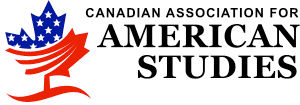American Literary Tourism (Anthology)
Literary tourism has a long history in American culture. From visits to the grave of the fictional eighteenth-century Charlotte Temple, to the restoration of Salem’s House of the Seven Gables as a turn of the century settlement house and tourist attraction, to competing twentieth-century Faulkner Festivals, literary tourism has become ingrained in American culture. Its currency is evident in the recent success of such events as the Zora Neale Hurston festival, held up as an exemplary example of how community revitalization can be achieved through the strategic development of cultural heritage tourism.
(continued below)
As a kind of secular pilgrimage to sites associated with canonized American writers, such tourism can be both extremely personal–rooted in imaginary bonds of sentiment formed between readers and writers–and extremely public. Public because these sites and events are, for the most part, presided over by the federal and state agencies, historical societies, and municipalities. Accordingly, while some caretakers imagine their role as spiritual, others are decidedly commercial in outlook. For instance, it is hard to escape the gift shop of the Mark Twain House in Hartford Connecticut or the marketing of the accompanying museum. Described as “the 21st century ‘new wing’ to The Mark Twain House,” it provides “a portal to American history and contemporary life based on one of its most original, indestructible interpreters.” Despite the careful marketing plans at such places, visitors continue to respond to literary sites in ways that cannot be easily contained or circumscribed by official narratives.
To date, considerations of literary tourism have been undertaken by cultural geographers and historic preservationists, as well as American, cultural, literary, museum, and tourism scholars. While some are accessible—see, for instance, Anne Trubek’s recent A Skeptic’s Guide to Writers’ Houses—as of yet, there has been no attempt to situate this work in interdisciplinary conversation. This collection intends to fill that gap, bringing together a diverse group of scholars, forwarding a cross-disciplinary exchange about American literary tourism. Questions might include: How do these sites come to exist? How do they affect how we understand writers and their literary creations? How do they affect or even fabricate local history? How do they contribute to the “canon” of American authors? What stories do these sites tell about their authors? How do literary history sites reconcile public interest in authors’ fictional worlds with the historical exigencies of those authors’ lived realities? Do literary history sites contribute to a kind of vernacular canonization and, if so, how does that process relate to what we in the academy mean when we speak of a literary canon? Other considerations are, of course, welcome.
We invite submissions from scholars interested in any aspect of American literary tourism, from the creation and maintenance of sites and events, to interpretations and experiences of them, and beyond. Send 300-500 word proposals and brief bio/CV to Jennifer Harris (jharris@mta.ca) and/or Hilary Iris Lowe (hilaryiris@gmail.com).
Deadline: October 30th, 2011. All proposals received by this date will be vetted by December 15th, 2011.
Please include:
Name and Affiliation
Email address
Postal address
CO-EDITORS
Jennifer Harris is Associate Professor of English at Mount Allison University, Canada. Her essays have appeared in African American Review, American Transcendental Quarterly, Resources for American Literary Study, and elsewhere. The current vice-president of the Canadian Association for American Studies, she has been a Fulbright scholar and SSHRC recipient, while also serving as managing editor of eight volumes of the Alphabet City book series (MIT Press).
Hilary Iris Lowe studies literary tourism in the U.S., recently specifically focusing on the literary sites associated with Mark Twain. Her manuscript on this subject is currently under review. She is a former Quarry Farm Fellow and has taught in the American Studies Programs at the University of Kansas and Temple University. She has published chapters on literary sites in Born in the USA: Birth and Commemoration in American Public Memory and Dixie Passages: Tourism and Southern History and served for three years as an acquisitions assistant editor at an academic press. She has been a docent at the Rosenbach Museum and Library, a literary house museum in Philadelphia, since 2008 and is part of the new Philadelphia Digital History Forum. She blogs about literary history, archives, and house museums at losthouses.blogspot.com.


Please comment with your real name using good manners.